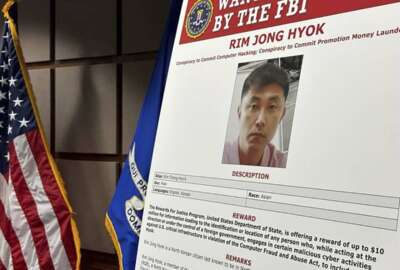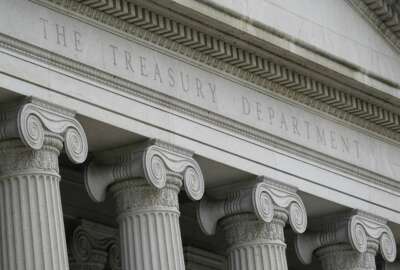Pope faces balancing act in Egypt amid security fears
Pope Francis is facing a religious and diplomatic balancing act as he heads to Egypt this weekend, hoping to comfort its tiny Christian community after a spate of...
VATICAN CITY (AP) — Pope Francis is facing a religious and diplomatic balancing act as he heads to Egypt this weekend, hoping to comfort its Christian community after a spate of Islamic attacks while seeking to improve relations with Egypt’s Muslim leaders.
Security has been tightened, with shops ordered closed and police conducting door-to-door checks in the upscale Cairo neighborhood where Francis will stay Friday night. His only public Mass is being held at a military-run stadium.
Vatican spokesman Greg Burke said Francis wasn’t overly concerned and wouldn’t use an armored car, as his predecessors did on foreign trips. Francis insisted on going ahead with the trip even after twin Palm Sunday church bombings killed at least 45 people and a subsequent attack at the famed St. Catherine’s monastery in Sinai.
“We’re in the world of ‘new normal,'” Burke said. “But we go forward with serenity.”
The highlight of the two-day trip will be Francis’ visit Friday to Al-Azhar, the revered 1,000-year-old seat of learning in Sunni Islam. There, he will meet privately with grand imam Sheikh Ahmed el-Tayeb, and participate in an international peace conference.
Francis has insisted that Christian-Muslim dialogue is the only way to overcome Islamic extremism of the kind that has targeted Christians and driven them from their 2,000-year-old communities in Iraq, Syria and elsewhere in the Middle East. While condemning extremist attacks against Christians, he has said he is traveling to Egypt as a messenger of peace at a time when the world is “torn by blind violence.”
But his message of dialogue and tolerance has been rejected as naive by even some of his fellow Jesuits, for whom Islam remains “a religion of the sword” that has failed to modernize. Even ordinary Egyptian Christians see his visit as a nice gesture but one that ultimately won’t change their reality.
“He has been saying the same words for years, which is all about love and tolerance, but political Islam ruined the world and the most important change should come from Al-Azhar,” said John, a 24-year-old Coptic Christian student from Cairo who declined to give his last name because he feared reprisals.
The visit, though, marks a diplomatic breakthrough for Rome after Al-Azhar severed relations with the Vatican in 2011 after Pope Benedict XVI demanded Egypt better protect its Christian minority following a New Year’s Eve church bombing that killed more than 20 people.
Francis has spent the better part of his four-year papacy seeking to mend the ties, and last year hosted el-Tayeb at the Vatican.
His reciprocal visit will cement the renewed relationship and should help el-Tayeb as he confronts an unprecedented campaign in Egypt’s pro-government media accusing Al-Azhar of failing to do enough to combat Islamic extremism.
While Al-Azhar has been increasingly vocal in denouncing attacks and trying to spread an image of moderation, “it is considered by some in Egyptian society to be fundamentally incapable of reforming the religious discourse,” said Michele Brignone, managing editor of Oasis, the Italian journal of Christian-Muslim dialogue.
Ishak Ibrahim, a researcher on religious freedoms at the Egyptian Initiative for Personal Rights, concurred.
“There is a difference between the statements released by the institution and its conduct on the ground,” he said.
For el-Tayeb, then, the pope’s visit is a timely godsend, showing him as a promoter of Christian-Muslim dialogue who not only scored a visit by Francis, leader of the world’s 1.2 billion Catholics, but also Patriarch Bartholomew I, the spiritual leader of the world’s Orthodox Christians.
Both men are scheduled to participate in Friday’s peace conference.
The pope’s visit will also help Egyptian President Abdel-Fattah el-Sissi bolster his image as a global statesman fighting religious militancy and advocating for interfaith dialogue.
The pope’s visit, following el-Sissi’s recent reception at the White House, will crown the time and effort he has invested in shaking off the international isolation he suffered after his 2013 ouster of Islamist President Mohammed Morsi, Egypt’s first freely elected president.
Egypt’s Coptic Christians, who make up about 10 percent of the country’s 92 million people, have been strong backers of el-Sissi even after the recent attacks and amid mounting international criticism of human rights violations by his government.
Burke, the Vatican spokesman, acknowledged that the pope could be used by leaders for their political ends during his foreign trips. But he insisted Francis has an agenda of his own: to minister to Egypt’s tiny Catholic community, express solidarity with the broader Christian community and improve ties with Muslims.
That said, even some of Francis’ own Jesuit confreres caution that the pope is naive in trying to hold dialogue with Al-Azhar and an Islamic tradition that they say remains stuck in the Middle Ages.
The Rev. Samir Khalil Samir, one of the foremost Jesuit experts on Islam, has written extensively about what he considers the fundamental problems of Islam and its failure to modernize, and told Francis his thoughts when they met last June.
Another Egyptian Jesuit, the Rev. Henri Boulad, told the Vatican newspaper, L’Osservatore Romano, that the ideology presented in Islam’s educational books and sermons preached by its imams served as “continual incitement” for the young.
“This is a problem within Islam, which does not offer responses to the questions of modern life and finds itself facing the need to reform itself,” the Vatican newspaper quoted him as saying.
___
AP reporters Hamza Hendawi and Meena Zaki contributed to this report from Cairo.
___
Follow Nicole Winfield at www.twitter.com/nwinfield
Copyright © 2025 Federal News Network. All rights reserved. This website is not intended for users located within the European Economic Area.




